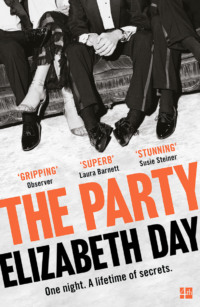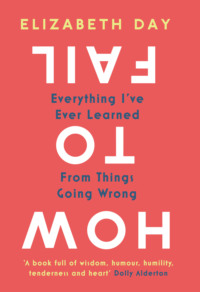
Полная версия
Scissors, Paper, Stone
‘Well, Anne, these things do take time, after all.’
‘How would you know?’
There was a small, offended pause.
‘Sorry, Janet. I’m rather at the end of my tether at the moment.’
‘Of course,’ she said, the words sounding strangulated. ‘Well, look after yourself, Anne, and I’ll call tomorrow.’
‘Thank you. Bye.’
‘Bye.’
Janet hung up and Anne sat still for several minutes, hands on the steering wheel in a precise ten to two position, glaring at the traffic jam in front of her. Then, after a few minutes, she turned on the radio and rotated the volume dial until it was almost too loud to bear.
Anne; Charles
So Charles and Anne became an item, inevitably, irreversibly and without much questioning on either side. Anne had never slept with anyone before, had never even had a boyfriend, and was always mildly astonished if a man expressed that sort of sexual interest in her. It hadn’t really crossed her mind that her friendships with boys could be misinterpreted and this made for several uncomfortable exchanges when news of her alliance with Charles trickled down through the college hierarchies.
‘But I thought you liked me,’ said a second-year undergraduate called Fred, with meek desperation. Anne could not conceal her bafflement.
‘Fred, we’re friends,’ she said, shaking her head at the sudden impossibility of it all. ‘Can’t we just be good friends?’
She couldn’t understand why her relations with men were suddenly constrained, punctuated by pockets of conversational difficulty and unease. Charles laughed at her when she told him.
‘Can you really not see the effect you have on men?’
‘But I’ve only ever been nice to them,’ she protested, feebly.
‘That’s the problem,’ he said. ‘You shouldn’t be too nice. It’s easy to misinterpret.’
For the first few weeks, being with Charles had been a glorious bubble of shared experience – of kissing and hand-holding and staring meaningfully at each other across a restaurant table; of buying roses and eating sticky buns for tea-time; of sitting next to each other in lectures and giggling under their breath at some inexplicable mutual joke. The sex, when it came, had been perfectly nice. It had not been the cataclysmic cymbal-clash that Anne had secretly anticipated for years. Nor had it been a painful, brutal semi-disaster of fumbling and not-quite-knowing. It had been a fleshy clasping of two bodies, a swift exchange of fluids, a brief glimpse of half-shut eyes and then, for a few seconds afterwards, a sense of tenderness, of having achieved a closeness that seemed secret from the rest of the world. He enjoyed it more than she did, if enjoy was the word. He seemed to view it as some sort of necessity or duty: a task to be performed to his best ability, without much concern for the pleasure it could bring the other person.
But, at last, Anne felt she had gained access to a tantalising adult existence that had only ever been hinted at. She assumed that other people had sex just like they did, the same physical bargain struck swiftly under the blankets. She never questioned Charles, given that he seemed so much more experienced than her. He knew what to do. She let him get on with it.
As if to compensate for the lack of physical passion, she became gently obsessed instead with the trace and curve of his body: the downy plump cushion of his earlobe, the unexpectedly ticklish patch behind his knee, the twisted purple of veins running down his forearm. She liked to kiss him awake in the mornings, starting at the tip of his forehead and running down past the fragile skein of his eyelids, meeting his lips at the last moment, the exhalation of his breath metallic against her tongue.
‘Morning,’ he would say, blue eyes lazily opening.
Frieda was unconvinced and sulky about the burgeoning relationship. ‘You spend all your time together,’ she said at dinner in hall one evening. ‘I never see you any more.’
Anne found she had no answer to this and no desire to give one. It was true that she increasingly spent as much of the day with Charles as possible, returning to Newnham only when she had to, swaying into bed with a sort of tired happiness. She could not understand Frieda’s angst or the constant background hum of her friend’s strained anxiety. Nothing in Anne’s life had ever caused her to question good fortune: it was simply there to be taken for granted and not to be worried about or overly analysed. Later, she would look back at her earlier self and be astonished by how guileless she had been, how improbably arrogant to assume that contentedness was a gift that everyone was given. She had been sheltered all of her life. By her parents, her privilege, her cleverness and her beauty.
Because although she liked to believe she never thought about it, Anne knew instinctively she was beautiful. She knew it, and yet she had no idea how to deploy it, how to use it to get what she most desired or how to subtly craft it into a knowing sort of charm. At nineteen, Anne was a girl-woman. Her sophistication was a pretence; her maturity unfinished. She was an innocent with the looks of an older woman, ill-equipped to recognise her own fatal power. She found herself on the edges of situations that she did not fully understand – with Fred, with countless other men who felt she led them on with her teasing, unwitting flirtation. Yet she was not courageous enough to admit the shortfall of her knowledge. And once she was able to, she found that she was too trapped to do anything about it.
At the start of her relationship with Charles, she ignored any faint intimations of disquietude, pushing them to the far corners of her mind and telling herself not to be so ridiculous. She spent the days in a library haze, surrounded by the open pages of books, making half-hearted notes underneath the strip-lighting of the History faculty. At nights, she would occasionally sneak him into her room to stay over, squashed into the rickety single bed, his feet barely covered by the sheets.
Once, she had woken up as the sun was creeping in through the curtain crack to find that he was no longer beside her. She put on her dressing gown and tiptoed across the uncarpeted floorboards, opening the door a crack in case the porter discovered she was entertaining an illicit male guest. She peered up and down the corridor but Charles wasn’t there. Then she heard the gentle rumble of his laughter. It was coming from Frieda’s room. She knocked and heard a sudden scrabbling and the sounds of Frieda shushing briskly. The door opened.
‘Anne,’ said Frieda, her face impassive. She was wearing a silk nightgown over a grey cashmere cardigan pulled tight around her breasts. Her hair, slick and dark, fell straight to her shoulders. Her angular face seemed to be faintly powdered and there was a smudged bruise of red lipstick on her mouth, despite it being just past seven in the morning. ‘Come in.’ Anne had immediately felt out of place in her dressing gown and thick blue pyjamas and her uncombed tangle of hair.
Charles was sitting on the end of Frieda’s bed, fully clothed and cradling a green mug of coffee. There was a deep-blue Indian throw slung artfully over the sheets, with intricate patterns sewn on it in thick red thread. ‘Hello there,’ he said, a familiar sheepish grin on his face. The sun lit up the back of his head so that he appeared silhouetted against the window. ‘Frieda offered me some of her Turkish coffee and I couldn’t resist.’
‘Do you want some?’ Frieda asked, eyebrows raised.
‘Um, no thanks,’ said Anne, sitting down beside Charles on a small corner of the bed. He did not move to make room for her, she noticed, nor did he touch her as he usually did. ‘I might try and get back to sleep, actually.’
Frieda laughed. ‘It’s amazing to me how you manage to sleep for so long, Anne. I love this part of the day: the freshness of the air. It feels more, more . . . alive, somehow.’ She swept up her long hair and pinned it back in front of the small mirror on the back of the door. ‘I can’t imagine dying in the mornings.’
Anne rolled her eyes imperceptibly. Frieda was always so unnecessarily dramatic, so unrelentingly dark and solemn. She thought it was something to do with her exotic upbringing – her father was a diplomat and Frieda had grown up in various far-flung countries, never settling in one place for long. She had once, in a rare moment of confession, admitted to Anne that this made it difficult for her to keep friends.
‘I know exactly what you mean,’ said Charles. Anne looked at him with undisguised surprise. He hated mornings, she thought. He could quite happily spend the whole day in bed, reading newspapers and eating toast. But she didn’t say anything.
There was a strange little silence. The room felt shrunken and airless, infiltrated with a creeping sense of awkwardness. Anne looked at Charles sideways. He was staring straight ahead, his eyes resting on the nape of Frieda’s exposed neck, sipping his coffee quite calmly.
‘Well, then. I might go back to bed,’ she said in a final desperate attempt to stem the flow of silence that oozed between them. She got up and reached an arm down towards him.
‘Charles?’
He looked up at her. ‘Yes?’
‘Are you coming?’
He smiled at her, a touch of condescension in his eyes. ‘Actually, I might stay here and finish this,’ he said, lifting up his mug. ‘If that’s all right with you,’ he added, and she felt he was making fun of her.
‘Of course.’ She tied the flannel belt tight around her waist and walked out, closing the door behind her to the soft murmur of their voices.
A bit later, when she was fitfully dozing back in her own bed, Charles came in and snuggled up beside her. He put his arm along her waist, his fingers gently stroking her hipbone. ‘Hello,’ he whispered, holding her tighter, and Anne smiled to herself and thought she’d been overly sensitive about the whole thing. She’d probably still been half-asleep. She took a deep breath. Nothing to worry about, after all.
‘Hello.’
So then everything was all right again, at least for a while.
Charlotte
Charlotte was at the office when her mother rang.
‘Charlotte?’
‘Yes,’ she replied, trying to keep her voice low so that none of her colleagues would hear it was a personal call. ‘What is it?’
‘Nothing important, just thought I’d catch you if you weren’t too busy.’
Charlotte clenched her jaw. Unthinkingly, she started scratching the tender patch of flesh just behind her earlobes. Her mother’s insistence on calling her at work was a source of constant irritation. She had told her several times not to do it because it was an open-plan building and she was conscious that everyone could hear her murmured replies to Anne’s familiar litany of daily complaints – workmen who hadn’t turned up, weeding that had yet to be tackled, a brand of washing powder that the supermarket had discontinued for no reason, and so on. At least when Anne called on the mobile, Charlotte could recognise the number and choose to ignore it. At work, there was no escape.
‘I am in the middle of something, actually,’ said Charlotte, almost whispering. From across the room, Sasha, the perpetually nosy office secretary, strained to look over the felt-board partition like a meerkat scanning the landscape for food. Charlotte turned the swivel chair away from her.
‘Oh. Well, I don’t want to bother you.’ But the way that Anne said it managed to convey exactly the opposite – she employed a wheedling, semi-offended tone that always made Charlotte feel terribly guilty. It was at times like these that Charlotte wished she had a brother or a sister to share the exhausting obligations of being Anne’s child.
She blew her cheeks out silently so that her mother would not hear the resigned exhalation of her breath. She checked herself. Why was she being so unsupportive? Clearly, Anne needed someone to talk to, Charlotte told herself. Charles’s accident had taken them all unawares but Anne had seemed especially dazed by it. She found herself thinking of that strange morning, some months ago, when Anne had presented Charlotte with her engagement ring. She had never worn it. The mere thought of that unblinking ruby made her shudder. But clearly there had been something going on with Charles; something not altogether pleasant. She sat up briskly and resolved to be kinder, more patient, more willing to listen.
Charlotte clicked on her mouse and minimised the typed document she had been working on so that it shrank to a thin sliver of grey at the bottom of the screen. Sasha had dropped back behind the partition, her eavesdropping attempts clearly frustrated. Charlotte felt a small pang of triumph.
‘No, no, it’s fine, Mum,’ she said, deciding that the least she could do was to give Anne five minutes of her time. ‘It’s not too urgent.’
‘Are you all right?’
Charlotte tried to keep her exasperation in check. This was a familiar tactic of her mother’s, and the more she denied that anything was wrong, the more Anne became convinced she had uncovered some dark awfulness that Charlotte was not admitting to anyone else.
‘Yes, I’m fine.’
‘You’re sounding very flat.’
‘I’m at work, Mum.’
‘Are you sure that’s all it is?’
‘Yep.’
There was a pause.
‘You know, if you don’t want to talk to me you only need to say so . . .’ Anne let the sentence trail off.
Charlotte held her breath.
‘It’s absolutely not that,’ she said, with as much cheerfulness as she could manage. ‘How are you?’
‘Oh, I’m all right. Bearing up. The hospital visits are rather wearing, I must say. I think it’s the driving there and back that takes it out of me and, of course, Janet and I had to cancel our Paris trip so that’s something else to deal with on top of everything.’
Charlotte twisted the phone cord in one hand, mentally zoning out. Her stomach rumbled and she began thinking about what to have for lunch – there was a café she had recently noticed nearby and she wanted to try it out. It was a traditional London greasy spoon, of the sort that she thought had ceased to exist with the advent of coffee-shop chains and oversized bookstores with ‘break-out’ armchair areas. She started imagining a jacket potato with melted cheese and cheap mugs of strong tea and then she realised her mother was still talking.
‘. . . no idea about the prognosis. I always told him to wear that blasted cycling helmet. Always. But he was so stubborn. He’d never listen to me. Or to anyone, for that matter. Not an easy person, your father.’ She let the comment filter though and then added: ‘But then you know that already.’
They lapsed into a short silence. Anne’s conversations normally led this way – no matter what she began talking about, the subject matter would slide inexorably towards Charles. Charlotte was fed-up of hearing about her father’s shortcomings, partly because she was only too aware of them herself, but also because she thought that if her mother genuinely felt this strongly then she should have walked out years ago. It was as if the constant examination of Charles’s faults fed into Anne’s sense of self, enabling her to ignore her own. The familiar nit-picking seemed to have become integral to Anne’s own identity, as though she would cease to exist without being able to define herself in opposition to something. And while she clearly sought Charlotte’s sympathy for all that she had to put up with, the truth was that Anne was fuelled by her own unhappiness. She relied on it. Charlotte was pretty sure her mother wasn’t the easiest person to live with either.
She had never voiced these thoughts to Anne, but they skulked beneath everything Charlotte said; a shadowy, irresistible undertow that pulled her words out of shape and twisted her sentences so that nothing that came out of her mouth seemed able to convey how she genuinely felt. She tried to quell the frustration she felt tighten in her chest.
‘Mum,’ she said, as pleasantly as she could, ‘he’s lying comatose in a hospital bed.’
‘I know that,’ said Anne sharply. ‘I’m just saying, it’s been an exhausting few days.’
‘Yes, I know. But he didn’t have the accident just to annoy you.’
There was a lethal quiet on the end of the line.
‘Right, well,’ Anne said crisply, ‘there was a reason I was ringing you.’
‘OK.’
‘I’m clearing out the house and I notice there are still boxes of your stuff in your old room.’
Charlotte thought of her childhood bedroom, the single bed in the corner with the pink-and-blue duvet patterned with dancing figurines, the small cabinet piled high with books and the motley assortment of patched-up teddy-bears. She could smell it: the instantly recognisable aroma of lavender pillows and sharpened pencils and toast being made in the kitchen below. She felt her throat constrict with an inexplicable sadness.
‘Is there anything you want to hold on to?’ Anne asked. ‘If not, then I can take a load to the Red Cross, but there might be some things in there that you’d like.’
Charlotte dragged her mind back to the conversation. She knew she should be aghast that her mother was clearing out the house when her father was in a coma, teetering between life and death, but she wasn’t, not really. Anne had a curious capacity for detachment and Charlotte knew, from years of experience, that there was little point in trying to penetrate the carapace of her coolness. It was her way of coping. Charlotte held her breath. She sensed that Anne was issuing her with a challenge, was seeking to push her to the brink of something, to goad her into a reaction. She did not want to give into it.
‘No, don’t throw anything out. I’ll come round and sort it out.’
‘When?’
‘As soon as I can manage it.’
‘Well, it would be nice to know in advance.’
‘I’ll let you know,’ Charlotte replied brusquely. ‘Listen, I’ve got to go.’
‘Yes, yes, I’ve taken up enough of your time.’
Don’t rise to it, Charlotte thought. Just don’t do it.
‘Bye, Mum. Nice to chat.’
‘Bye, Charlotte. Do let me know when you’re coming round, won’t you?’
Anne hung up. Charlotte stayed motionless with the receiver pressed to her ear and listened to the reassuring crackle of the dialling tone for several minutes.
The rest of the day turned out to be an accumulation of petty irritations. She found that she could not shake the discomfort of her conversation with her mother or the thought that the family home was being disembowelled of memories, that Anne was somehow preparing herself for Charles’s permanent absence. She tried to talk herself out of such a fanciful notion, but once it had taken hold, she found that it coloured her mood so that every subsequent thought that passed through her mind disquieted her.
On the way back, she snapped at someone on the Tube for accidentally standing on her foot. She felt at once too hot and too cold, and when she walked down the stairs at East Putney station, she found that she could barely summon up enough energy to get to the bottom.
Charlotte was already dreading the evening: she was going to a private view with Gabriel and she could feel herself slipping helplessly into fractiousness.
She was determined not to have a row. As she got ready, she made a series of increasingly ludicrous bargains with herself: she would restrict herself to two drinks; she would let anything hurtful that was said skim over the surface of her consciousness; she would be mature and thoughtful and wise and she would tackle any issues that arose in the sobriety of the following morning. Above all, she thought to herself as she dabbed at her lips with a gloss that tasted like burnt caramel, she would rise above it – the whispered criticisms, the implied insults, the cold shoulders and the knowing half-stares from Gabriel’s disapproving friends – because she, Charlotte Redfern, knew that he loved her above all else.
‘Nothing else matters,’ he told her, sensing her unease as they climbed into the back of a black cab. ‘Stuff happens. People have to get used to it. Besides, it’s nothing to do with them.’ He took her hand in his and drew her over to his side of the seat. She noticed that he smelled faintly of toothpaste. ‘I love you above all else. You know that, don’t you?’
‘Yes,’ she said, and she meant it.
As the cab juddered its way across Hyde Park Corner to the art gallery where one of his friends was curating the exhibition, she wondered about the truth of this. She thought she knew – at least in the sense that he told her so and she believed it, although it had taken her a long time to trust him. She had known Gabriel for two years as a friend before anything had physically happened between them, and much of that time had been taken up with circular discussions about how she could ever trust him. He had been married before – unhappily, of course – and came with a chequered personal history that involved a string of ill-conceived flirtations. There had been a couple of brief affairs with trivial blonde girls, although he assured her that they hadn’t ‘meant anything’; that they had been symptoms of his discontent rather than being worth something in their own right. Yet his capacity for infidelity made her instantly wary of him. At the same time, she was forced to acknowledge that she was falling in love with him, and could not reconcile the two concepts. Objectively, he was entirely the sort of man she least wanted to be with. But everything he said and did overturned her supposedly infallible preconceptions. He was unlike anyone else, so disarmingly honest about his own failings and so consistent in his devotion to her, that it was difficult to resist him and impossible to protect herself from all that he promised to be.
It had been a spontaneous reaction: a feeling, as soon as they met and shook hands and sat down in the shimmering heat of a July evening, of knowing all that there was to know about each other. Part of Charlotte hadn’t wanted to believe it at first because she didn’t trust her own judgement that it was happening. For so long, so many years, she had wanted to feel exactly this shared recognition and to call it love. Throughout her twenties, she had projected all she most desired on to a series of not-quite-right men. The relationships had lasted two years at the most because, no matter how hard she tried, nothing ever quite seemed to live out its initial promise.
She had come to believe that love was a matter of compromise and that everyone made a similar bargain – they just didn’t talk about it. At the weddings of her friends, she found herself both jealous of the occasion and astonished that anyone could actually go through with it. With every new church reading she had listened to about tree roots growing together, with each choked speech delivered by the misty-eyed father of the bride, with every first dance she had smiled and nodded through, with every scrap of confetti she had scattered on dampened tarmac, Charlotte became more and more convinced of the pointlessness of it all.
Her cynicism became its own worn-down cliché. When, last summer, her friend Susie had asked her to be a bridesmaid, she found herself dreading the prospect but said yes in spite of herself. Charlotte had been out to lunch with her mother when Susie called and, curiously, Anne had proved something of an ally.
‘Another wedding?’ Anne said as Charlotte slipped her mobile back into her handbag.
‘Yep,’ she replied, spearing an asparagus stem with her fork. ‘And another bridesmaid’s dress. Lemon-coloured taffeta if I know Susie.’
Anne smiled dryly. ‘It’s a phase. Everyone seems to get married at the same time in their twenties, but it will pass.’ She took a sip from her glass of wine and looked at Charlotte sideways. ‘There’s no rush, you know.’
‘I don’t know if I ever want to get married,’ said Charlotte, not convinced that she meant it. ‘No one can live up to the overblown romance of a wedding.’
She expected her mother to disagree and half-wanted her to tell her not to be so pessimistic but instead Anne stayed silent, twisting the stem of the wine glass in her fingers, her eyes focused on an indistinct point just beyond the bread basket.






